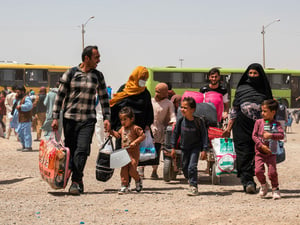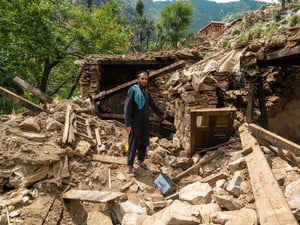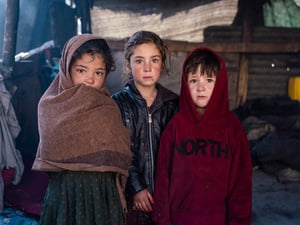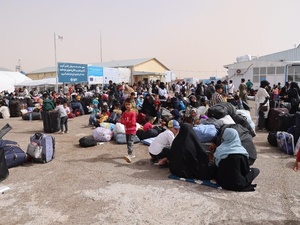Iran: First repatriation from Iraq for nearly a year
Iran: First repatriation from Iraq for nearly a year
A group of 180 Iranian refugees returned home yesterday (Thursday) in the first repatriation from Iraq in nearly a year. This first group of returnees were refugees who had fled their settlements in eastern Iraq in early April because of insecurity and tensions with the local host community. They have been encamped at a makeshift site at the Al Charani border crossing, hoping that they would be allowed to return home.
UNHCR staff have been working closely with the Iranian government to organize their return, and yesterday Tehran opened the Al Charani border crossing so that these anxious refugees could return home.
Hundreds of other refugees refused to cross back into [the Islamic Republic of] Iran when border authorities said that their livestock would not be allowed into the country, a standard practice stemming from veterinary health concerns.
Other Iranians who have been waiting at the border for more than six weeks with their cars, tractors and other farm machinery were also not allowed to cross the border by their government. Last year we facilitated the return of more than 1,100 Iranian refugees in nine convoys together with their vehicles, but Iranian officials baulked yesterday and all the refugees had to walk across the frontier, carrying their goods.
We are taking the matter up with the Tehran government, trying to persuade it to allow farmers to bring their costly equipment and vehicles back to their homeland.
We expect Tehran to keep the border open to Iranian nationals who want to repatriate from Iraq, though we hope to redirect all future return movements through the main Shalamancheh crossing point near Basra, rather than the remote Al Charani border located more than 200 km to the north.
There are more than 23,000 Iranian refugees in Iraq, including more than 6,000 settled in the east of the country in settlements around Dujaila, Al Kumeit and Ali Al Gharbi. More than 4,500 of Iraq's Iranian refugees were cleared by Tehran to return home before the outbreak of war, so we expect many of these people to return.
Elsewhere in the region, we're currently caring for more than 2,400 refugees at camps in eastern Jordan and in the no man's land on that country's frontier with Iraq. The majority of the more than 1,250 people in no man's land are Iranian ethnic Kurdish refugees who fled Al Tash refugee camp 120 km west of Baghdad in late March. There are also more than 70 Iraqi nationals blocked in the makeshift border encampment.
In Jordan's Ruwaished refugee camps, we're caring for more than 970 Palestinian refugees, while some 200 Sudanese and Somalis who fled Iraq during the war are in the adjacent IOM/Red Crescent camp.







